COVID-19 is exposing UK health inequalities
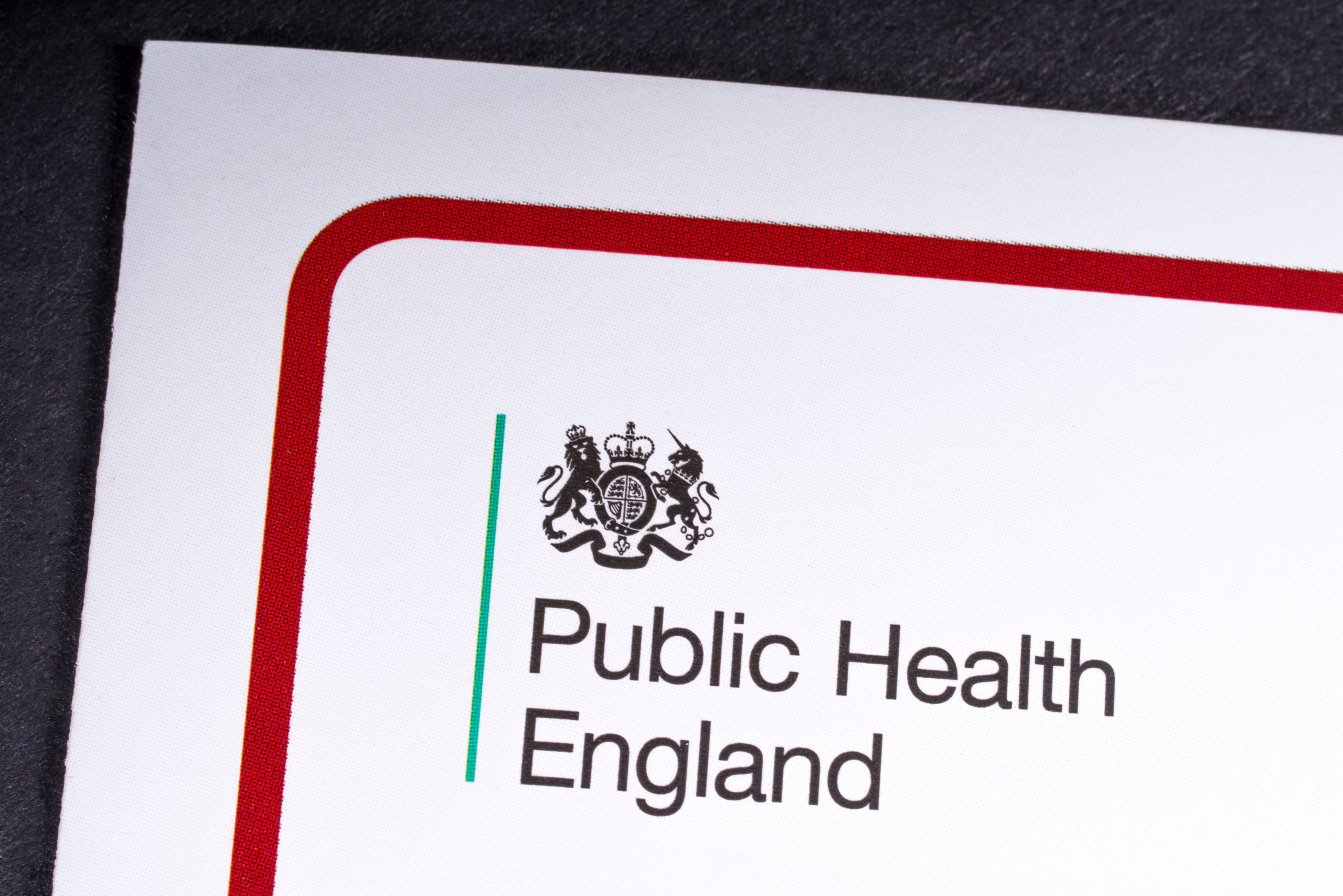 Recent figures from theDepartment of Health and Social Care (DHSC) show the UK death toll from COVID-19 was nearly 40,000 by the start of June. This makes the UK’s death toll among the worst in the global pandemic. Black and minority ethnic (BAME) communities make up a disproportionally large part of that figure.
Recent figures from theDepartment of Health and Social Care (DHSC) show the UK death toll from COVID-19 was nearly 40,000 by the start of June. This makes the UK’s death toll among the worst in the global pandemic. Black and minority ethnic (BAME) communities make up a disproportionally large part of that figure.
For the last couple of months, it has been increasingly apparent that COVID-19 was infecting and killing members of the African, Caribbean and Asian communities at a higher rate than the white population. The reasons have been hotly debated, leading the UK government to commission a detailed study to dig deeper into the figures to try and find a cause and formulate recommendations to mitigate the impact on BAME communities.
Published on 2 June, the Public Health England (PHE) report shows that the reasons for this are complicated and still unclear. Recommendations are also thin on the ground, other than to advise people from BAME backgrounds to continue to take the current government guidance seriously.
The data and its analysis suggest some possible reasons for the higher death rate. People from Asia, Africa and the Caribbean are over-represented among so-called essential workers in public transport, food retail, the care sector and the health service. The very groups most routinely exposed to the SARS-CoV-2 virus day-to-day. But among health workers as a whole, from medical consultants to care home staff, nurses to domestics, it is black and minority ethnic staff who have had the highest mortality. So that alone cannot be the reason.
Housing may also be an issue, with BAME households often being larger, more multi-generational and living in poorer quality housing than the white community. With adults, children and grandparents living together in houses where bedrooms are shared and outdoor space is limited, the risks of transmission are increased.
But many of those in BAME communities who have died are from affluent backgrounds, including prominent medical consultants. Poor and overcrowded housing cannot be a cause on its own.
Even when allowing for all these factors, people from African and South Asian backgrounds who contracted the virus were 10-50% more likely to die than those from comparable white ethnic backgrounds. Those from a Bengali background were twice as likely to die as their infected counterparts from white backgrounds. However, PHE admits that the data on which this is based did not account for underlying health issues, especially obesity and type 2 diabetes, or profession and occupation. Where such data has been taken into account in other, smaller studies, the differences in mortality, according to PHE seem almost to disappear.
Age remains the main predictor for mortality, with the vast majority of COVID-19 deaths being among the over sixties. However, social deprivation/poverty, age, occupation, and underlying health conditions are also significant predictors for who will get ill and who will die. Hypertension and type 2 diabetes are more prevalent in some BAME communities than in the white population, with the latter being particularly linked to risks of COVID-19 mortality. Is that the underlying reason? Again, the data is not clear and needs much further study.
So, while ethnicity is closely tied to many of these factors, it is still not clear whether ethnicity alone is a predictor. What is clear is that all the factors contributing to COVID-19 mortality are ones already recognised to be driving health inequalities in the UK. COVID-19 has just exposed the inequities that were already there.
And it’s not just in the UK that we see this. In the US, the figures are equally stark – COVID-19 is killing more African Americans and Hispanics than any other groups. Looking further afield, the impact on migrant workers and minority communities around the world seems to be far greater than among majority communities.
So, how should we respond as Christian healthcare professionals?
It has long been recognised that, even with a National Health Service offering healthcare for all on the basis of need rather than ability to pay, health inequalities are rife throughout our country. These inequalities have mapped almost exactly on to areas of social deprivation for decades. And they have also largely mapped on to the BAME communities in the UK. It has been an issue that those working in Public Health have been grappling with for decades.
COVID-19 deaths across the BAME community have, rightly, caught the attention of the public. During the last three months, the national conversation has shifted to how much we need and should value all our essential workers, especially in health and social care. That so many of these workers are from BAME communities and that so many from those communities have died has been a wake-up call for the nation, and has perhaps created a window of opportunity for political and social change.
John Piper, in his recent book Coronavirus and Christ, reminds us that plagues and other natural disasters can be used by God to wake his people, and the wider world, to something that is wrong. Let’s seize the moment.
The Bible warns harshly that neglecting justice or profiteering off the suffering of others is abhorrent to God. But we need to look at ourselves first, before judging wider society to ask how we have got this wrong.
Writing in his new book, God and the Pandemic, Tom Wright urges the church first and foremost to lament for suffering, death, and inequity. But lamenting is not just crying. It is not only calling out to God to ask why this has come to pass, but also calling out to God in repentance for the part we have played in letting it happen in the first place, either by action or inaction, commission or omission.
The health professions have not been immune to discrimination, nor has the NHS and neither has the church. And let’s call it by its name – racism. It is not just inequality, but conscious and unconscious bias against patients and professionals because of the colour of their skin. It is a hard truth to face, but we have to recognise and repent of our own part in this.
So, ask yourself, where in your sphere of influence have you noticed inequalities or racism but turned a blind eye, dismissed it as a one-off incident, or persuaded yourself that you are unable, or not the right person, to make a difference? We have all failed to some extent in this respect, and need to repent before God for our sins in this area.
But we cannot stay with lamentation and repentance – we also need to act. To look at how we can reach out and support those who are suffering within BAME communities, among the poor and the marginalised. At how we can address discrimination in our workplaces, professions and, indeed, in our churches. Let us ask God to open our eyes to injustices around us and give us boldness to speak up when we have the opportunity. Let us be proactive in educating ourselves about the particular risks, vulnerabilities and needs in the communities among which we work, learning how we can ameliorate those risks. And let those of us who are white, humble ourselves and ask our BAME colleagues what they need us to do to be allies and advocates for them and their communities.
CMF is a membership body of Christians in medicine, nursing, midwifery and other health professions. As such, a significant and growing proportion of our membership is black, South and East Asian, Eastern European and from other migrant and long-established minority ethnic communities. If that is you, please know that we are currently grappling with how we can support and equip you in your work and your walk with the Lord, as well as how we can influence our professions to enact justice for all our colleagues and patients. If there are things we can be doing or saying that would help you, please do let us know.
Maybe COVID-19 is the wake-up call for us all to sort out our role in reconciliation and justice. That is what the Kingdom of God looks like.

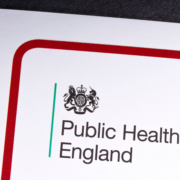
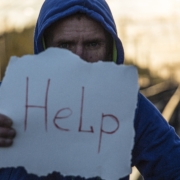
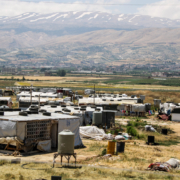
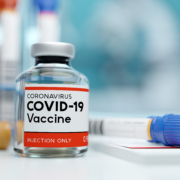
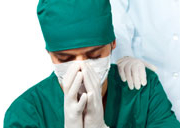
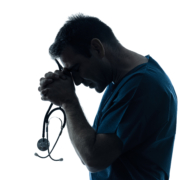

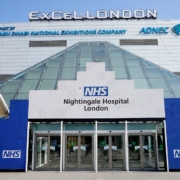


Leave a Reply
Want to join the discussion?Feel free to contribute!